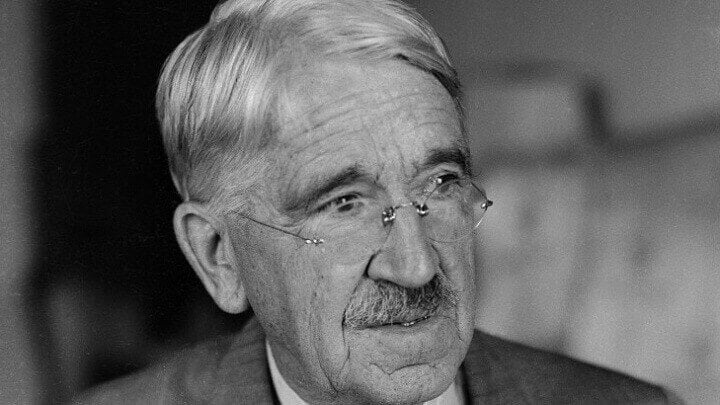John Dewey (1859-1952) is considered one of the most important education psychologists, his models in this field were part of the educational revolution that took place in the last century, even today part of our education system is not yet familiar or up-to-date. for Dewey’s contributions.
In this article we will talk about one of his classic works, his book Experience and Education. This book presents the synthesis of his reflection on education. John Dewey has always believed that we must educate people about democracy, to find a way to achieve critical thinking among students in favor of our society. To achieve this, Dewey presents three important principles to consider in education: (a) continuity of experience, (b) social control and (c) the nature of the experience.
- Dewey assumes that education and experience maintain an organic bond between them.
- Meaning that our experiences are what educate us.
- But that does not mean that all experiences are true or also educational.
- Some of these experiences will hinder our development.
- Becoming “anti-educational”.
This is where the concept of continuity of experience used by Dewey comes into play. Will an experiment become anti-educational? When it nullifies the positive impact of previous experiences Instead, it will go to education when experiences help to face subsequent experiences, thus achieving a continuous enriching experience. For Dewey, achieving this continuity of positive experiences was critical to education.
The traditional education we live in today is full of experiences that hinder continuity, how many students think learning is boring and boring?The school is now a source of anxiety for a large part of the students, which provokes an attitude that makes them repudiate possible educational experiences, thus breaking with the continuity of the experience.
Education is not something that the individual does alone or that cannot be facilitated by others (especially when we talk about children), it is a social process, being a community, they need rules to maintain social control over educational activity. the rules did not exist, there would be no activity; it’s like trying to play a game without rules, it would lose its meaning.
But what should these standards be and how should they be applied?Traditional schools assume they need strict regulations that prevent students from going the same way, either with greater or lesser certainty. Dewey notes that this type of social control generates a hierarchical relationship between teachers and students, which transforms them into taxable subjects of education.
Dewey believed that social control should arise from the situation, ideally flexible regulation that adapts to student progress and the situation of teachers, and it is important to note that, in the educational field, the entire educational community must be involved. . Regulatory management should be a joint effort of students and teachers to promote the creation of a school environment that promotes learning.
Every time we talk about social control and regulation the word freedom also appears, you get the feeling that the greater the social control, the less freedom there is, but it is not entirely true, it will depend on the type of social control exercised and the nature of the freedom we are talking about. John Dewey divides the concept of freedom into (a) freedom of movement and (b) freedom of thought.
Freedom of movement is the potential that allows us to perform any type of behavior, the greater freedom of movement, the greater the variety of behaviors possible, freedom of thought is something more complex, it is this capacity that allows us to critically evaluate a situation and the choices we have to face it; the greater the freedom of thought, the more choices we have to guide our behavior.
The two freedoms don’t necessarily have to go hand in hand, because freedom of movement can end up limiting freedom of thought. This is exactly what Dewey criticized in progressive school, he saw that the goal of this school was the freedom of movement to give freedom of movement regardless of freedom of thought can lead students to get carried away by their impulses and not think about their choices.
An important aspect related to this is that freedom should never be a goal. Freedom is a tool that helps students develop. If we promote the freedom of thought of students, they can guide their experiences autonomously towards educational continuity.
John Dewey was highly critical of traditional educational models and some of the most progressive; in traditional models, he saw a rigid system, which had educational objectives far removed from its democratic principles; In addition, with progressive models, Dewey felt that his initiatives were short and did not achieve what they were looking for.
Dewey has never come to complete an ideal educational model, however, he clarified the idea that to improve the educational models already postulated it was necessary to carry out scientific and rigorous research in this area, contrary to speculation so fashionable and that it is maintained. somehow.
By collecting data from our schools, we will be able to see what changes are needed, in this way, in a continuous application-research-application, our system would evolve towards a worthy and true educational system. The question implicit in this explanation is: current education based on scientific research or is it in charge of economic and political powers?

